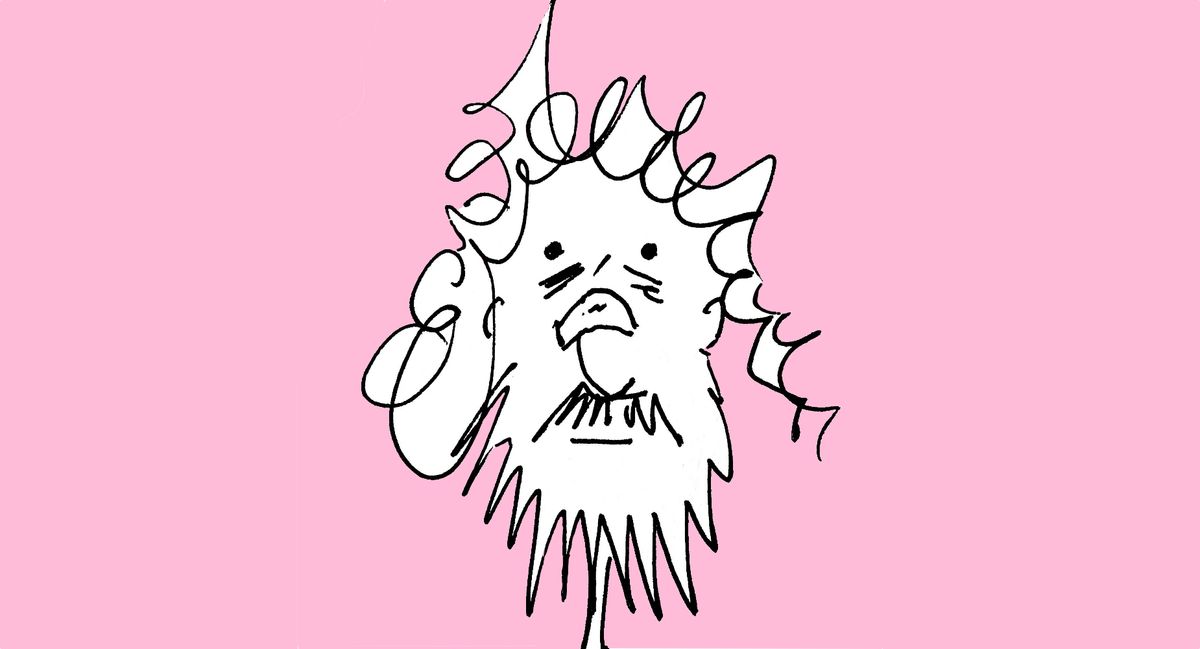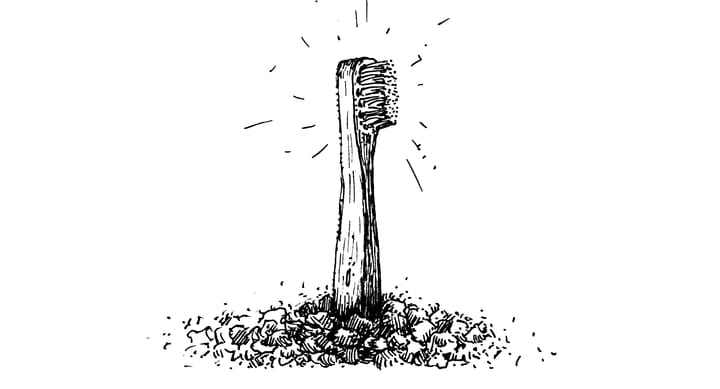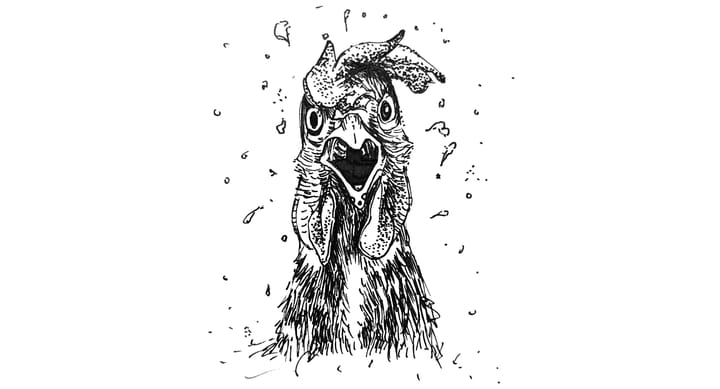Kick me in the face
The first ambulance was for someone else, but the second was for me

An ambulance came for me this week. The paramedics weren’t sure what they would find.
It wasn’t like the last time an ambulance came. That was a few months back, in the dark of the early morning. Our dog Teddy started barking and my wife Vic woke me, saying she could hear someone fiddling with the fly screen on the front door.
I walked out in my boxer shorts to a woman wearing high-vis gear and a mask, shining a phone-torch light through the stag etching on our front-door window.
“Did you call an ambulance?” this paramedic asked through the glass.
“No, sorry, I didn’t,” I said. I briefly wondered why in situations like this we default to an apology, merely for being involved in a waste of time, however indirectly.
The paramedic peered through the glass and over my shoulder, as though she suspected I was being disingenuous, withholding an emergency.
After the paramedic left I joked to Vic that Teddy was proving his worth as a guard dog. By alerting us that someone had… come to the front door and knocked.
- – — – -
This week, the ambulance came for me.
It started with my nose and its stubborn, blocked, and occasionally infected back corridors. I’d tried pretty much everything to ameliorate my sinuses. Prescriptions. Pills. Powders. Rinses. Sprays. Inhalations. Dietary changes. I might briefly be rewarded with a breath of cool air, some clarity of smell. But the blockage would always return. Or perhaps, deep within, the fluid had never really budged.
The sinuses extend far more extensively beneath the surface than what you might imagine just looking at the nose. Pockets extend across the forehead and cheekbones. When they’re inflamed, I can feel the pain pulsing around my eyes, and in the temples. It feels like my brain is a pin cushion.
This week, when I felt the channels start to constrict once more, I decided to try acupuncture. The acupuncturist, a short guy fastidious about checking my pulse, put one needle in each wrist, and eight more needles around my face, chatting about what I should start to feel, how the tension would subside. Needles don’t concern me too much. Even if I’d been squeamish about needles, they were mostly on my face, where I couldn’t see them.
“How does that feel?” he asked.
“Um... good actually,” I said, surprised that I could inhale through my nose, that my face would relax so easily.
The acupuncturist left me alone in the room for a while. I felt content for about 15 minutes.
But then I started to think on it.
I’d been lying here for a while. How long would I continue to sit here, skewered? Had the guy just... forgotten about me? I had to be back at work in about half an hour. And I had the car, which Vic needed to pick up the kids. This flush of urgency blossomed into a headache in my right temple.
I called out and the acupuncturist came back in.
“Is everything all right?” he said.
“How long do I need to stay like this?” I said.
“Thirty minutes,” he said.
That felt like too long.
“How are you feeling?” he said.
“Okay, but I have a bit of a headache on the right side,” I said.
“That’s not good,” he said, and started to massage my temples.
I haven’t worked with patients before, nor am I trained in a health-related field, but I’m pretty sure that those three words – that’s not good – don’t belong in the therapeutic lexicon.
It was the worst thing to say to someone like me. Instantly his lack of composure was now mine. I channelled his concern and amplified it into panic.
Every muscle in my body locked tense. Every nerve fired at once. I became red hot, broke into a sweat, and went limp. For about thirty seconds, I was just seeing white, in between flashes of former dreams.
It felt like my brain had swollen outside my skull and extended into the room; when the acupuncturist touched my face to take out the needles, he was not touching skin but the pia mater itself. The brain was too hot outside of its shell, and all the thoughts – all logic, any chance at equilibrium – were immediately oxidised.
The acupuncturist left and hurried back with a glass of warm water, and asked me to sit up and sip. I drank a little but then had to hand it back to him and slump back on the bed, woozy. A stifling layer of nausea settled over me, and I started peeling away clothing wet with sweat, in a vain effort to pull the nausea away.
I couldn’t see myself, but the acupuncturist could, and what he saw concerned him enough to pick up his phone and call an ambulance. I could hear snippets of what the operator on the line was saying.
“... We are experiencing delays at the moment. Just to confirm: Is he breathing...?”
I wanted to shout out, “I’m fine. Just having trouble keeping my eyes open. And about to vomit.”
But I didn’t have the energy.
- – — – -
The ambulance took two hours to arrive. An indictment, I felt, of this situation’s urgency.
While we’d waited for the paramedics, Vic had arrived with my daughter Ida, who’d been at home sick. Since the car was stranded outside the building with me, Vic had no choice but to walk, with a six-year-old child strapped to her back in a carrier meant for babies or toddlers. This hike across town hadn’t fazed Vic. (Almost nothing fazes Vic.)
Man, they make those carriers strong, I thought.
There were three paramedics: a guy with curly hair, a younger woman who was perhaps in training, and a woman with distinct, dark blue eyes (the only feature I could make out behind her mask) who called all the shots.
The small room was now pretty packed, accommodating not only me on a bed, but Vic and Ida, the three paramedics, and the acupuncturist. With the exception of the acupuncturist, who’d never in his career had to call an ambulance, they all possessed the composure of people who’d seen hysteria before.
The young paramedic pricked my finger to measure my blood sugar. She had to prick several times and squeeze hard to get any blood out. My fingers were so pale they were practically translucent.
The guy with the curly hair put a clip on my finger to measure my blood-oxygen level, and then asked me what day I thought it was. I couldn't recall the day straight away, but that happens to me all the time.
The lead paramedic with the dark eyes affixed sticky, circular pads all over my chest, explaining that she would use these to assess my heart. The sticky pads connected to a machine they’d carried in, which now quietly printed a series of receipts, tiny dot-matrix peaks and valleys mapping the activity of my heart.
The curly haired paramedic handed me a ring with a plastic bag threaded through it.
“What’s this for?” I asked.
They stood me up to measure whether my blood pressure would drop once I was upright. A flush of nausea rose up from my gut and I vomited through the little ring into the plastic bag.
- – — – -
It felt like I’d fallen asleep and woken up abruptly.
Some time was missing.
The paramedics were finishing packing up their gear. The lead paramedic offered me an arm to stand up slowly.
“You’ve had a near syncope event –” she said, making eye contact with Vic, “with an extreme response.”
I wondered if this was a medical way to describe an overreaction. A prickle of embarrassment rose up the muscles at the base of my neck.
The acupuncturist started chatting with Vic, explaining that their clinic had never seen anyone have such a response to acupuncture. The only thing close was an elderly woman who passed out because she hadn’t eaten anything that day.
“Richard must have a very weak constitution,” he said to Vic. I’d been so unresponsive for so long, he’d forgotten I was conscious and listening.
I shuffled to the car unsteadily, with two paramedics either side of me, and my spew bag in hand.
At the car, the lead paramedic, the one with the blue eyes, who was gentle but sparing with her words, turned to me.
“So, do you think you’ll be getting acupuncture again?” she said, with the hint of a smile.
I grinned back weakly, appreciating that we could end this scene with a joke.
- – — – -
Was “syncope” an attempt by the brain to short-circuit the panic cycle that the brain itself set in motion? A dramatic attempt at self-correction?
Reset this machine, it’s overheating.
Turn it off and on again.
- – — – -
When I got home I was so drained I wanted to sleep, but the nausea kept me suspended in a wretched consciousness.
I lay on the wooden floor – I needed it cold and uncomfortable, to stave off the urge to vomit – and watched season whatever of Suits, a show Vic and I had long since abandoned, because of the increasingly unrealistic list of second chances everyone gave Mike, the upstart almost-lawyer who seems mostly oblivious to the impact his hijinks have on those who gift him chance after chance after chance, a perpetual whinger who, after seven or so seasons (I lost count), no longer deserves any of it, if indeed he ever had.
The TV you watch when you’re sickly is essentially ruined for future viewing, forever associated with your bodily state. So you may as well watch something terrible.
Vic cheered me up by superimposing her own dialogue every time Rachel, played by Meghan Markle, commenced some torturous monologue with her boyfriend Mike.
“I’m sorry Mike, but I must away to marry the Prince of England.”
- – — – -
When the brain mutes itself so violently, the waking up is traumatic.
I felt like a watercolour of myself the following day. A pale wash with a blurry outline. Partly asleep, but awake. The nausea persisted all through that day and into the following morning.
I had to tell a few people at work what had happened, to explain my absence. Even though I edited the story in different ways for each person, sometimes omitting the acupuncture, sometimes replacing “syncope” with “fainting” or “going into shock”, I always finished with the ambulance, which shut down any further questions. It felt like I was giving away a secret flaw.
The first layer of embarrassment came from the natural compulsion to feel bad about inconveniencing other people: the paramedics who surely had more worthy people to save (the paramedics actually gave me a squeaky clean bill of health before they left – model blood pressure, oxygen levels, blood sugar); or my work colleagues, who could have had a person helping with the tasks at hand, if that person hadn’t chosen some left-field therapeutic technique he’d never tried before. I was embarrassed at my choice – it gave me something to blame – but beneath that I was also ashamed to have come across so frail, to be compared to an elderly person, to be labelled a “weak constitution”.
- – — – -
Just over 48 hours after the ambulance, I had taekwondo sparring. It’s pretty intensive exercise, and I wasn’t sure I’d be up to it. But I also needed to prove to myself that this constitution wasn’t so weak after all.
My stomach felt a little fragile as we ran around the dojang to warm up, but once I got into the swing of stretching and kicking, I forgot about the previous couple of days and the ambulance, and the residual queasiness faded.
We put on our sparring gear and paired up, and I started to feel the heightened alertness that comes to you when you have to fight someone. It’s intense physical exertion. It’s so damn hot wrapped inside all that protective gear. But most of all: It’s an act of self-preservation, of trying not to get kicked or punched.
We ran some crescent-kick drills, taking turns to throw a kick while the other person leaned back so their head was out of the way. Partway through I experienced a small lapse of attention and didn’t move my head back far enough. My sparring partner’s heel smashed upward across my top lip and into the centre of my nasal septum.
Instinctively I turned and walked towards the exit, pausing with my head down and my hands on my knees for a few minutes. It was painful, but mostly I was just surprised. This was a different shock to the insidious warmth and nausea which I’d just come out of. This was more like being plugged into a power outlet and the switch getting flipped. Once the initial pain subsided, I could see the edges of the room in sharp contrast, and felt… awake. I went back to the sparring session and finished out the half hour. The decision to come to training was a good one, I thought. I wonder if we’re capable of as much we say we’re capable of – and that this can go both ways.
My instructor hadn’t seen the incident, but he had seen me bent over at the exit, and asked about it after training.
“How did that happen?” he asked, after I explained.
I smiled, because what he was really saying was: “What was your face doing where his kick was?”
- – — – -
When I went home that evening I blew my nose – gingerly – and saw a little blood. I thought of a Frenzhal Rhomb song “Punch in the face”, which was a favourite of mine at university. The lyrics are pretty repetitive, but they cut to the chase:
All we need is, all we need is
All we need is, all we need is
All we need is, all we need is
All we need is
Is a punch in the face



Comments ()